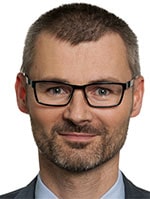Google rankings – a neverending story
Table of Contents
Rankings – some unspoken truths
A neverending story
A final tip
- 200 g ribbon noodles (or other variety of your choice)
- 1 large onion, diced
- 2 tbsp oil
- 250 g minced meat, mixed
- ⅛ litre red wine
- 5 tbsp tomato purée
- ½ tsp thyme
- ½ tsp cayenne pepper
- 1 ½ tsp salt
- grease for the mould
- 100 g grated cheese of your choice
- 200 ml cream
This is the list of ingredients for a so-called Strasbourg casserole.¹ Figuratively speaking, the list of ingredients is comparable to the tips and tricks that are regularly mentioned to achieve good rankings on Google & Co. by means of content marketing and Search Engine Optimisation (SEO):
- 1 cup clear H1, H2 and H3 structure
- 200 g of simple language with keyword prominence and keyword density
- 1 pinch of sensible text length and short, speaking URL
- 1 tsp formats of choice (e.g. videos, podcasts, infographics etc.)
- 2 tbsp professional hosting for high security and low loading times
- ½ litre internal networking and backlinks
The message of many posts on content marketing or SEO is similar: use the right ingredients, and after an indeterminate amount of time, the Google rankings will follow. And basically, there is useful knowledge in these recipes – even if one or the other sounds rather simple and requires more practice, reflection and repetition than stated.
Unfortunately, most of these lists of ingredients conceal one certainty: dealing with Google rankings – and also with rankings in other search engines or on platforms – is a neverending story.
Rankings – some unspoken truths
Position 1 on Google is the ultimate goal of many content marketing campaigns. The top ranking is considered proof of quality and is thus the central indicator of success. Unfortunately, there are also some unspoken “truths” about the number 1 ranking:
- It is a snapshot.
- It is no guarantee for a permanent top position.
- It is often not evidence of quality.
- It is not a guarantee of clicks.
- Number 1 is often number 5.
- Position 1 exists several times.
- 0 is better than 1.
- And the result of the search query is individual.
Let’s look at these points in a little more detail:
The ranking is a snapshot. It’s nice if you have gained the place in the sun for a keyword or keyword phrase. Congratulations. But that doesn’t mean it will stay that way. Before your website took this position, another page was leading in the ranking. Position changes are the rule and not the exception. And even though it is difficult to gain the top position, it is often just as difficult to keep it.
Ranking is no guarantee of a permanent top position. Time and again it happens that a single website, despite its good positioning in Google, disappears from the top 100 search results. The content is unchanged, the backlinks are identical and yet the ranking is lost. Why? The assumption is that the reasons remain hidden, especially since Google continuously adjusts its ranking algorithm.
The ranking is often no proof of quality. This is easy to understand if you look at the content of websites that rank higher than your specific website. On the one hand, Google cannot directly determine the correctness of a topic’s content or the specificity of the information, but on the other hand, Google probably pays attention to at least 200 ranking factors. So if you have many well-positioned web pages, a page with less content may still rank well.
Example:“A product owner is one of the six roles in the Scrum process.” The page with this text ranks first on Google Germany for the keyword “Product Owner”, but Scrum only defines three accountabilities, until 2020 these were known as “roles”. This is therefore outdated and at the same time incorrect information. Apart from that, Scrum is a framework and not a process. So ranking and quality do not always have to go hand in hand.
Top ranking is no guarantee for clicks. In probably all SEO tools, there are functions to find out the monthly search volumes for individual terms. The information about these volumes comes from Google and is clustered.
Example: “Blacklisting is the process of creating and maintaining a blacklist. A blacklist manages similar items that an organisation, individual or service distrusts.”¹ The monthly search volume for “blacklisting” or “blacklist” given by Google is a fantastic 110,000 queries. So those who rank 1st for blacklisting should be pleased, but unfortunately the figure is completely useless! Most searchers find out about an American crime series, the next season, the main actor or the attractive supporting actress in episode 7, season 2, so being in position 1 is no guarantee of clicks if the actual intention of the searchers is not fulfilled.
In the ranking, position 1 usually comes only at position 5. Have you noticed that ads in Google are becoming more and more similar to organic hits? The “advertising” insertion is getting smaller and smaller, is sometimes abbreviated to “ad” or replaced by “sponsored”. Google’s intention is clear: searchers should click on these links because Google earns money from them. And the best organic hit, the top ranking, is often only to be found in position 5 and thus behind the ads.
Position 1 exists several times. What sounds strange at first glance is very important for content creation. Anyone searching for a term or expression receives a list of answers. These answers can easily be filtered according to the type of information (images, videos, news, shopping, etc.). So, for example, you might have written the best text on a topic, and still not end up in position 1 in the “All” filter, because Google first displays a different format.
Example: If you search for Picasso images or Banksy images, you will get an image listing first – interestingly with a “most popular first” ranking for Picasso and without such information for Banksy.
0 is better than 1. This is a daring thesis for a software development company, but in relation to Google it is relatively often true again. Google pursues a self-interest. However, it is NOT about the highest customer benefit or user experience.
Example: Wikipedia answers many questions, but the visual appearance of the website feels like it comes from a different era. A website that graphically presents identical information in a more “valuable” or “better” way should therefore rank higher than Wikipedia because of the better user experience, but in most cases it does not.
Two self-interests are obvious:
- Google wants to make money and this works very well through the placement of paid content ads.
- If it cannot earn money with paid ads, Google would prefer to keep searchers on the platform and not lead them to websites.
Google has this second point in common with the vast majority of platforms. Why is this interesting in terms of top ranking? Because more and more frequently, so-called knowledge panels are displayed for queries, which are automatically generated and answer a specific query in short sentences, without the searcher having to call up the corresponding page. The knowledge panel is displayed above position 1 at position 0.
The result of the search query is individual. Searchers influence the information Google displays through their previous search and click history. Rankings are thus often individual. You can easily understand this if you search for an identical term from two different WLAN networks or on different end devices. If you want to track a “neutral”, “true” ranking, you should ideally use professional SEO tools for this.
A neverending story
If one “truth” is that “Google ranking is a snapshot”, then studying the subject leads to two key realisations:
- It is a race with stage winners but no finish line or final victors.
- The rules of the race – i.e. the ranking algorithms – are continuously changed. Sometimes this leads to a stage win and sometimes to a forced restart.
These two findings ensure a permanent, worldwide preoccupation with the topic of search engine ranking and ranking factors. This is also in Google’s interest. And since it will not change in the foreseeable future, it is simply a neverending story.
A final tip
As we all know, anyone who deals with online marketing and SEO cannot get past Google. But since Google continuously adjusts its ranking algorithm and rankings change as a result, I would like to give you a final tip:
Don’t go crazy if a keyword loses positions. Rankings that you lose today may be regained the day after tomorrow. And even if this day after tomorrow sometimes takes several months, there is usually little you can do to shorten this period. Instead, continuously produce good content for your readers or customers; Google will almost certainly notice this at some point and reward you with additional, good rankings.
Notes:
Would you like to exchange ideas with Michael Schenkel about rankings and your observations and findings? Great, he’s just an email away.
[1] Chefkoch.de: Strasbourg casserole
[2] more Information about blacklisting
Google has summarised its philosophy in ten principles. According to its own statement, these are reviewed from time to time. Interestingly, the company “hopes” that the list will remain up-to-date and that it can continue to be measured against it. Alone about the statement “Google only allows ads to appear on search results pages if they are relevant to the content being searched for. Ads can contain useful information – if, and only if, they are relevant to what you are looking for. That’s why it’s also possible that certain search queries won’t show any ads at all.” would be a great topic for discussion!
Michael Schenkel has published other articles in the t2informatik Blog, including

Michael Schenkel
Head of Marketing, t2informatik GmbH
Michael Schenkel has a heart for marketing - so it is fitting that he is responsible for marketing at t2informatik. He likes to blog, likes a change of perspective and tries to offer useful information - e.g. here in the blog - at a time when there is a lot of talk about people's decreasing attention span. If you feel like it, arrange to meet him for a coffee and a piece of cake; he will certainly look forward to it!


